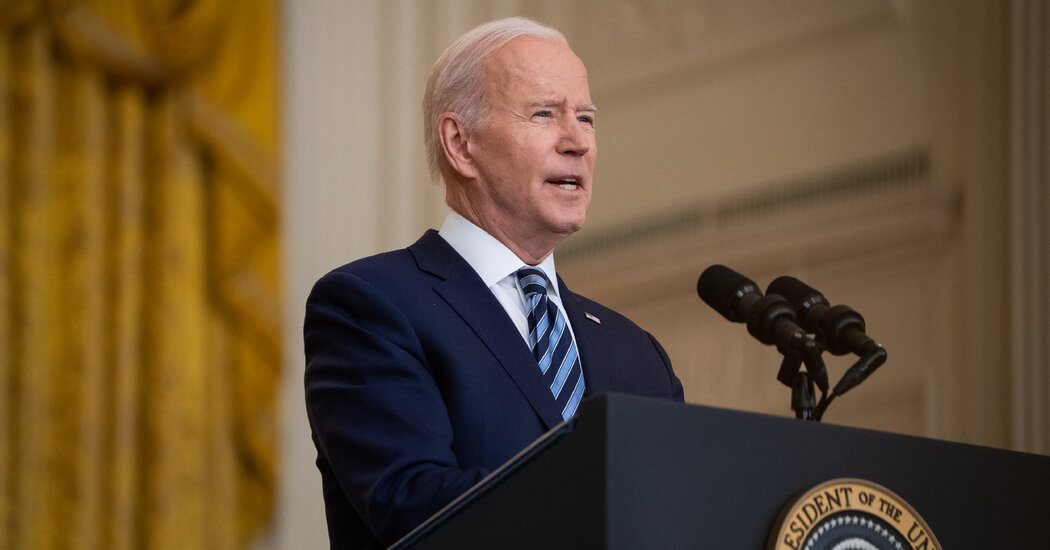
“That’s really going to be the test: Does Fortress Russia hold up when you have assets that may be frozen overseas?” said Daniel Tannebaum, a partner at Oliver Wyman who advises banks on sanctions.
For now, U.S. and European officials are not ready to cut off all Russian banks from Swift, the Belgian money transfer system used by more than 11,000 financial institutions worldwide. But a senior Biden administration official told reporters on Thursday that such an action was not off the table. In Europe, governments differ on whether to untether Russia from Swift.
U.S. officials for now do not plan big disruptions to Russia’s energy exports, which are the pillar of the country’s economy. Europe relies on the products, and world leaders do not want to drive oil and gas prices higher, though Germany did halt the Nord Stream 2 gas pipeline project this week.
European Union leaders met in Brussels on Thursday evening and pored over the details of proposed sanctions, which they insisted would deliver a heavy blow to the Russian economy.
But documents seen by The New York Times indicated that the bloc, which has close financial ties to Russia and shares borders with Ukraine, would probably defer several difficult decisions, despite pleas from Poland, the Netherlands and the Baltic States to take a hard-line approach.
“Enough of this cheap talking,” said Prime Minister Mateusz Morawiecki of Poland, which has already received Ukrainians fleeing the war. He added: “We are buying as Europe, as the European Union, lots of Russian gas, lots of Russian oil. And President Putin is taking the money from us, Europeans. And he’s turning this into aggression.”
Reporting was contributed by Matina Stevis-Gridneff from Brussels, Alan Rappeport from Washington, Motoko Rich from Tokyo and Yan Zhuang from Melbourne, Australia.




